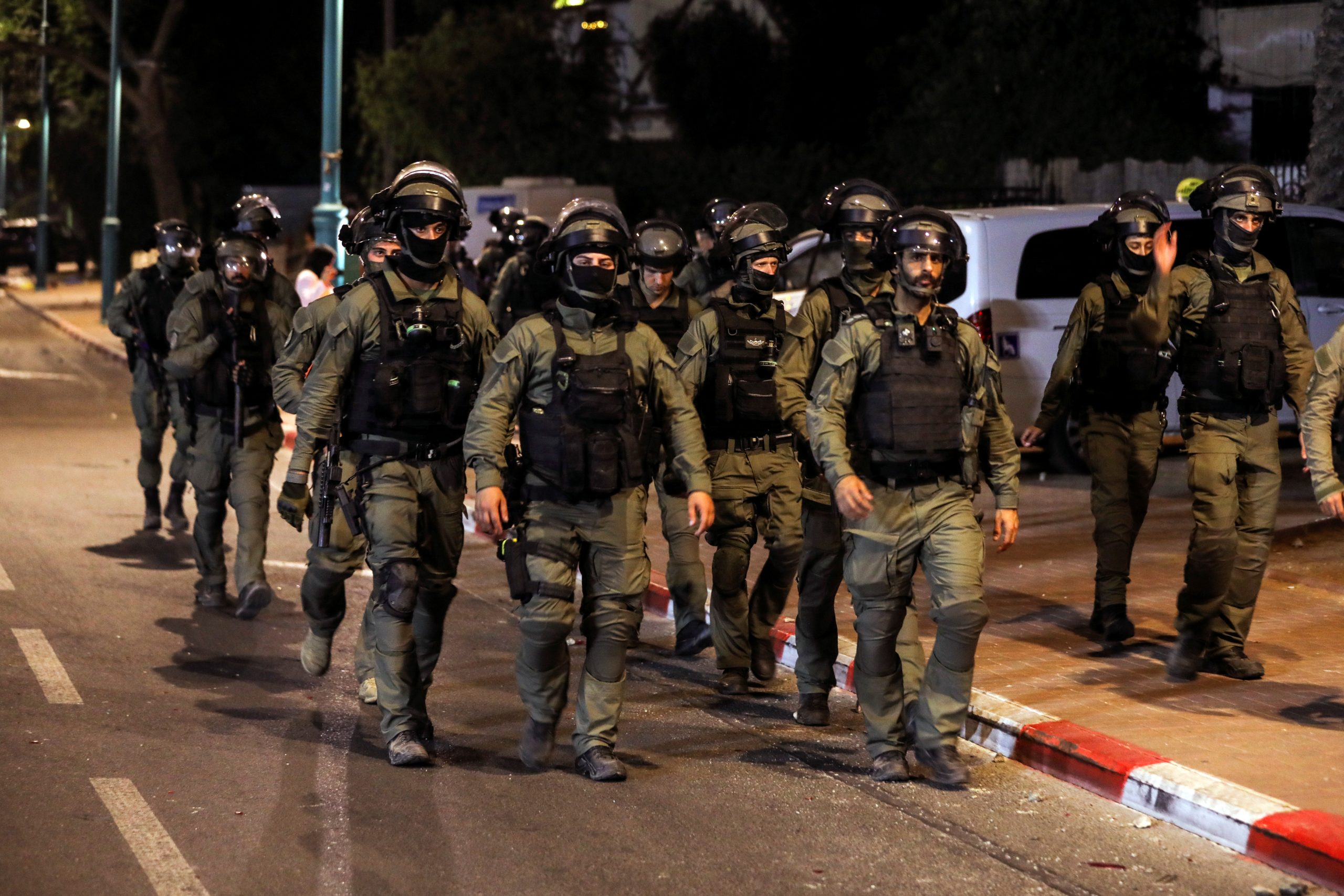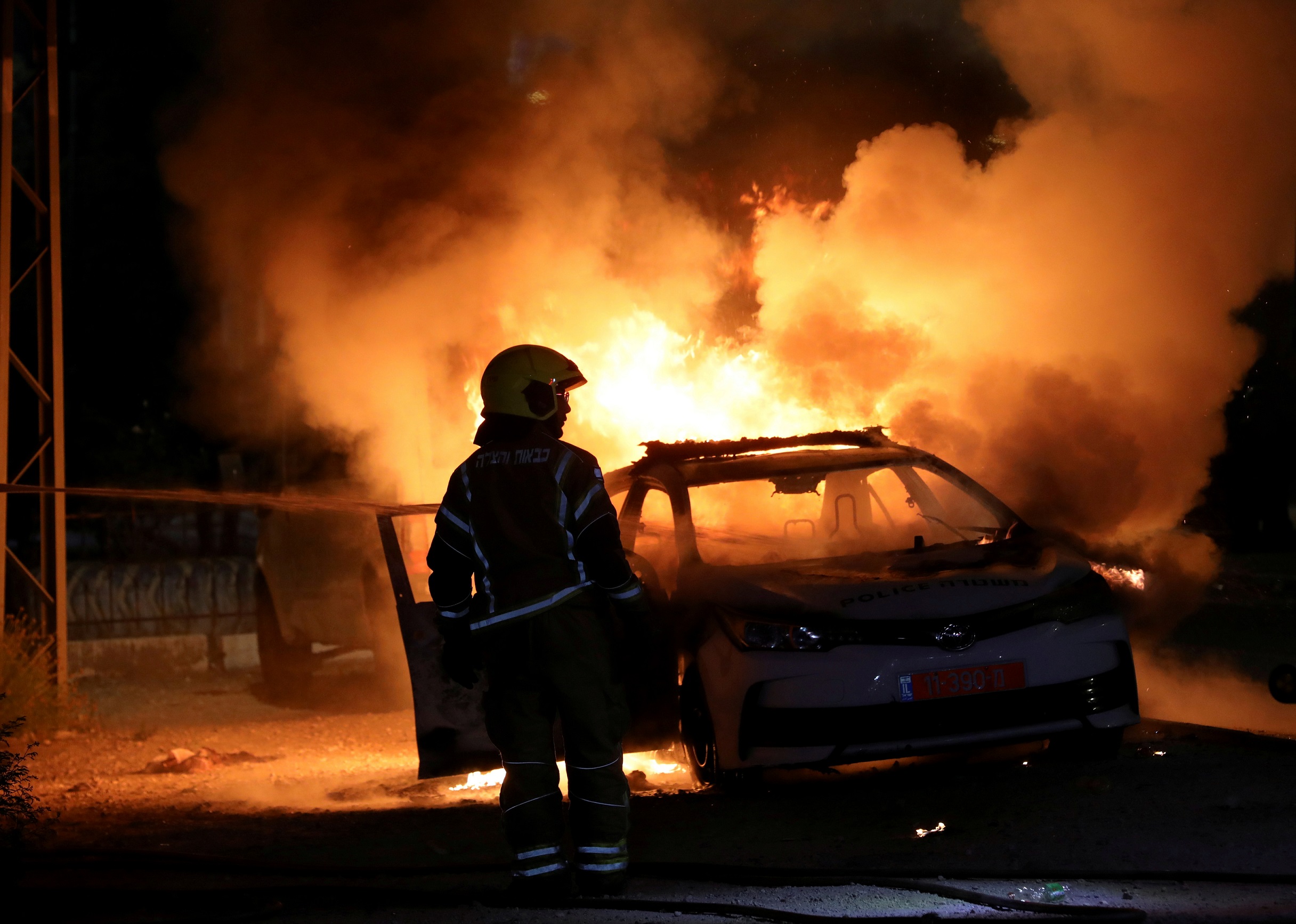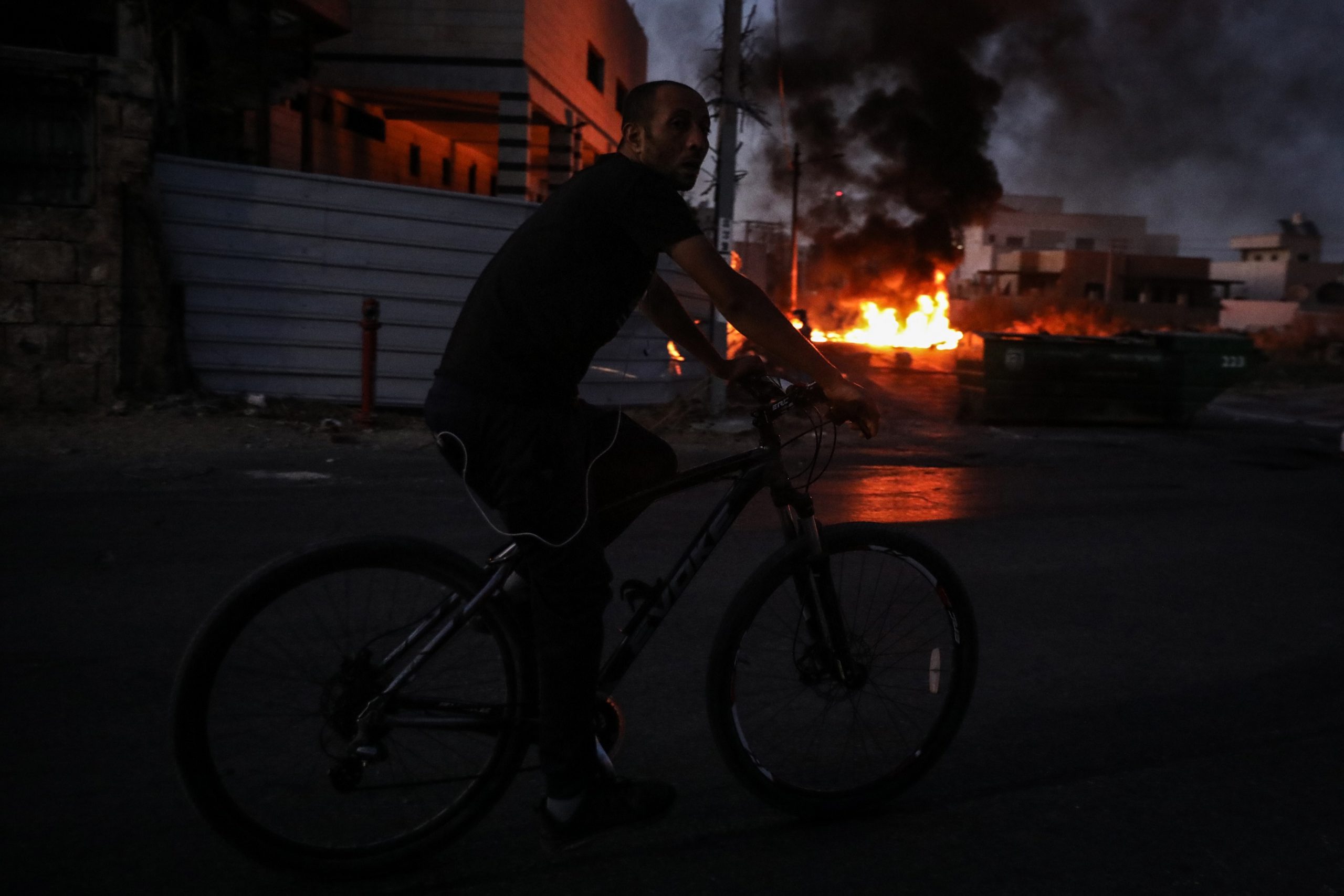Publications
INSS Insight No. 1629, August 22, 2022
The State Comptroller’s report on cities with mixed Jewish and Arab populations during the May 2021 riots focused on two main subjects: faults in the preparedness and conduct of Police and Border Police forces in the context of insufficient intelligence for effective detection, prevention, and management; and substantial disparities in municipal spending to the detriment of the Arab population in the so-called “mixed cities.” The convergence between the two issues may help explain the severity of the events and the extent of the damage they caused. Had there been a stronger infrastructure for shared Jewish-Arab daily life and had the police responded to the eruption of the riots more effectively, perhaps the events might have been less severe. While Operation Breaking Dawn did not spark unrest in the mixed cities, clearly the changes recommended by the Comptroller’s report are critical, and hopefully will be adopted by the relevant systems.
During Operation Guardian of the Walls in May 2021, violent riots erupted in several cities with mixed Jewish and Arab populations. Three Israeli citizens were killed, hundreds were wounded, and extensive damage (estimated at $16 million) was caused to civilian property at 520 sites. in July 2022 the State Comptroller issued a special report about the so-called “mixed cities” during the riots and the lessons that can be drawn, focusing on two main issues: law enforcement and municipal services.
The report highlighted flaws in police preparedness for simultaneous disruptions in multiple localities. The events revealed significant weaknesses of police stations in the mixed cities, failure of police officers to handle violations of public order, and insufficient preparedness among the Border Police reserve forces. There were also flaws in the division of responsibilities for intelligence between the police and the Shin Bet (Israel Security Agency). The report criticized shortcomings in the police’s transition from routine to emergency situations, which is based primarily on reinforcements as a solution to the different capacities of local police forces to respond to large-scale violence. The Comptroller’s main recommendations to the police and the Shin Bet were to improve their routine activity in mixed cities and enhance their preparedness for extreme events based on emergent reference threats.
In the section on municipal services, the Comptroller noted the many challenges facing mixed cities originating in the history of relations between Jews and Arabs. Both sides, the report stipulated, must invest substantial efforts to create an environment that will enhance shared daily life, taking into account the deep disparities in municipal services offered to Arab and Jewish residents in those cities. The Comptroller found that the municipalities had not considered the needs of their Arab populations, including religious services, welfare, youth services, and cultural events. For example, only 1 percent of the 500 public buildings in mixed cities were designated for Arab residents. In the ongoing absence of a five-year plan for the Arab populations in the mixed cities, the Comptroller recommended earmarking budgets to meet the needs of those populations.
The State Comptroller’s special report is particularly significant as it sheds light on a major issue that has shaken Israeli society since the riots of May 2021, and poses fundamental questions about the current and future nature of relations between the Jewish majority and the Arab minority. While Arab political parties are integrating into the Israeli political tapestry, many wonder whether it is possible to live with a reasonable degree of coexistence given the background of the historic conflict between Israel and the Palestinians. Many who do not believe that such coexistence is possible claim that if the Palestinians are Israel’s enemies, Arab citizens of Israel should also be viewed as foes. Proponents of this view are accused by some of blocking any change designed to build a shared future among all Israeli citizens, using violent and sometimes terrorist means. Clearly there are those who think otherwise, mirrored in the deep political divide characterizing Israeli society.

The State Comptroller’s report chose to adopt a factual, objective approach. It sought to expose flaws in the governing system’s approach to the Arab minority that accompanied the deep-rooted social gaps that may well have led to the riots of May 2021, as well as the circumstances that negatively affected the performance of the police during those events. Presumably the Comptroller chose this approach to suggest that more correct and effective systematic functioning in both the “hard” area of law enforcement and the “soft” area of municipal social management might have mitigated, if not prevented, those troubling events. This conveys an important message about the need for more rational, systematic conduct in the future, given the challenging context of Jewish-Arab relations in Israel.
The report refrained from directly relating to the strategic issue of the complex relations between Jews and Arabs in Israel, and focused primarily on operational concerns for the police and municipal matters. On this basis, strategic recommendations are proposed here regarding handling of public disorder events and confrontations of a nationalist nature in general, and between Arabs and Jews in Israel in particular:
- The Police relative to scarce governmental allocations: The Israel Police are the primary defenders of Israeli citizens and Israeli democracy. However, their strength is inadequate relative to the scope and variety of missions in their areas of responsibility. They are almost completely invested in routine policing in accordance with the missions imposed on them by law, and thus have little ability to prepare and function effectively during emergencies. Emergency preparedness is a low priority for the police, as evidenced by budget, equipment, and manpower allocations and by their organizational structure. Thus, most commissions of inquiry that have examined the Israel Police have dealt with emergencies. The most important example was the Orr Commission in the wake of the October 2000 Arab riots. Nevertheless, routine missions always prevail. A first and essentially necessary step in this context is to significantly enhance police capabilities regarding the full range of their missions, quantitatively and qualitatively.
- The Border Police: The strategic reserves of the Israel Police for managing extreme disturbances and domestic emergencies are the Border Police. However, this high quality force is not sufficiently available, largely because it is deeply involved in routine security and semi-military missions in the West Bank and East Jerusalem. Recent decisions to strengthen the Border Police are important but not sufficient. Enlarging the regular and reserve forces of the Border Police and doubling the tactical forces are worthwhile. However, if this expansion is not accompanied by qualitative improvement, there will be a low yield on the investment. Qualitative improvement entails capabilities of planning, professional multi-mission training, and intelligence, relevant for effectively handling missions in emergencies and extreme disorder in the civilian sphere. But strengthening the Border Police alone will not solve the problem; the Israel Police and its police stations must also be bolstered significantly.
- Intelligence must be enhanced strategically, and not merely tactically. Police operations to deter and prevent crime and enforce law and order vis-à-vis civilian disturbances must rely on readily available, accurate, and reliable intelligence based on a variety of overt and covert sources, including technological means. The Israel Police have made significant progress in their capability to gather and process data, particularly for criminal investigations. They have far fewer capabilities for handling disturbances in general and among Arab citizens of Israel in particular. This deficiency is evident in their failure to deal effectively with illegal weapons proliferation and with nationalist radicalization, which contributed to the severity of the May 2021 disturbances. In these areas the police and the Shin Bet must formalize and strengthen their collaboration, in accordance with the law, as the State Comptroller recommended. The report will likely generate renewed consideration among policymakers and law enforcement officials regarding the need to create integrated systems that increase systematic capabilities for identifying early warning signs, and prevent and manage violent civil outbursts in the future.

The Comptroller's report also identified substantial disparities resulting from unequal allocations of services in mixed cities as key factors in inflaming the riots. Given the challenging relations between Jews and Arabs in Israel, insufficient attention to this volatile issue, as linked here to the May 2021 riots, portends what may happen across the country in the future. Israel is a country with mixed populations, in which socioeconomic disparities between the strong and the disadvantaged groups are increasing. This issue has clear implications for impaired governance capabilities nationwide.
Just as the riots of May 2021 jolted the Israeli public and led to a searing debate about Jewish-Arab relations, attention should be devoted to the disparities in socio-economic background that likely in part ignited the riots, and substantially impact the shared daily life in the mixed cities and in the country as a whole. Israel’s governments have not paid sufficient attention to mixed cities and particularly to their Arab population, even in the allocations in the nation-wide five-year plan for Arab society. The systematic change that should be made in these profound issues of Jewish-Arab relations are the single most important message of the Comptroller’s report. That was also the main message of the Orr Commission report, issued following the serious riots of October 2000. Initially, its important recommendations were partially adopted, but the system soon returned to its inadequate routine. Then came the riots of 2021. Will this pattern repeat itself?
Adequate preparation, along the lines of the report’s guidelines, will take time. While Operation Breaking Dawn was not accompanied by disturbances in mixed cities, the issue remains no less immediate or urgent.



